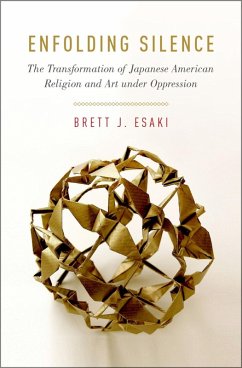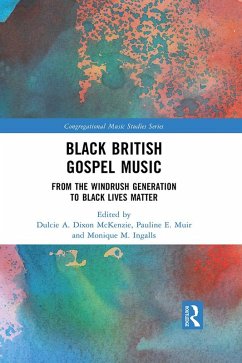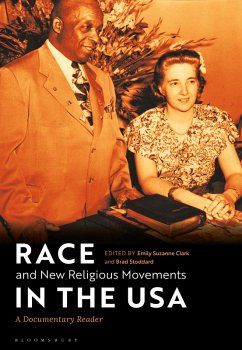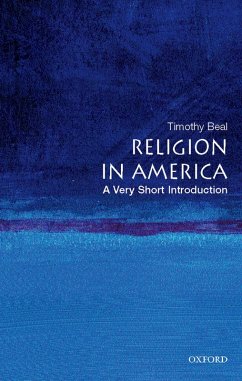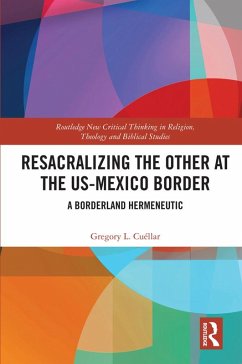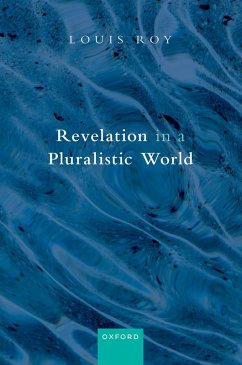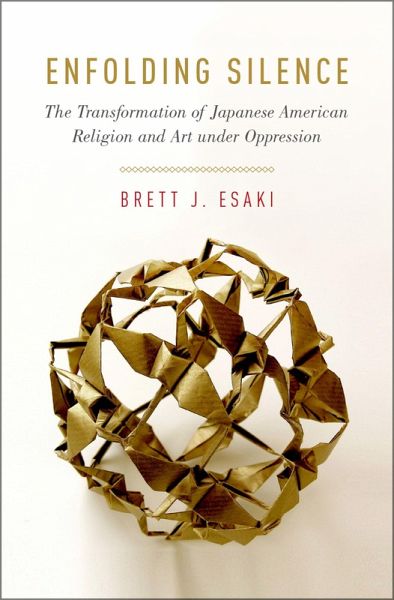
Enfolding Silence (eBook, PDF)
The Transformation of Japanese American Religion and Art under Oppression
Versandkostenfrei!
Sofort per Download lieferbar
37,95 €
inkl. MwSt.
Weitere Ausgaben:

PAYBACK Punkte
19 °P sammeln!
This book demonstrates how Japanese Americans have developed traditions of complex silences to survive historic moments of racial and religious oppression and how they continue to adapt these traditions today. Brett Esaki offers four case studies of Japanese American art-gardening, origami, jazz, and monuments-and examines how each artistic practice has responded to a historic moment of oppression. He finds that these artistic silences incorporate and convey obfuscated and hybridized religious ideas from Buddhism, Christianity, Confucianism, Shinto, indigenous religions, and contemporary spiri...
This book demonstrates how Japanese Americans have developed traditions of complex silences to survive historic moments of racial and religious oppression and how they continue to adapt these traditions today. Brett Esaki offers four case studies of Japanese American art-gardening, origami, jazz, and monuments-and examines how each artistic practice has responded to a historic moment of oppression. He finds that these artistic silences incorporate and convey obfuscated and hybridized religious ideas from Buddhism, Christianity, Confucianism, Shinto, indigenous religions, and contemporary spirituality. While silence is often thought of as the binary opposite and absence of sound, Esaki offers a theory of non-binary silence that articulates how multidimensional silences are formed and how they function. He argues that non-binary silences have allowed Japanese Americans to disguise, adapt, and innovate religious resources in order to negotiate racism and oppressive ideologies from both the United States and Japan. Drawing from the fields of religious studies, ethnic studies, theology, anthropology, art, music, history, and psychoanalysis, this book highlights the ways in which silence has been used to communicate the complex emotions of historical survival, religious experience, and artistic inspiration.
Dieser Download kann aus rechtlichen Gründen nur mit Rechnungsadresse in A, B, BG, CY, CZ, D, DK, EW, E, FIN, F, GR, HR, H, IRL, I, LT, L, LR, M, NL, PL, P, R, S, SLO, SK ausgeliefert werden.




